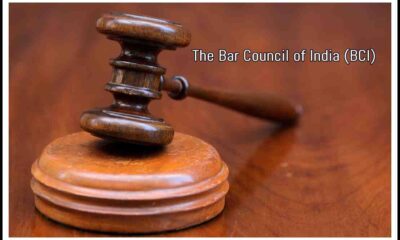News
As New Online Content Rules Approach, an EU ‘Enforcer’ Visits Meta and Twitter to Assess Readiness
Published
1 year agoon

Sam Altman, the CEO of OpenAI, the tech firm that created ChatGPT, will also be at the EU commissioner’s meeting
To make sure the major platforms are prepared, the EU commissioner in charge of enforcing Europe’s landmark new rules on online content is travelling to San Francisco on Thursday.
The European Union’s Digital Service Act (DSA), which will apply to the largest platforms in the world, including Facebook and Instagram, both of which are owned by Meta, as well as TikTok and Twitter, will go into effect just weeks after Thierry Breton’s two-day visit.
Breton will meet with Twitter owner Elon Musk and Meta’s Mark Zuckerberg. Musk acquired the highly influential platform late last year.
All eyes are on Musk, who, in direct opposition to the EU’s new rules, has modified many rules about what language is permitted on the site since taking ownership of Twitter, sometimes abruptly. This includes language that is found offensive or that spreads hate and misinformation.
Breton also has plans to meet in California with Sam Altman, the CEO of OpenAI, the tech firm that created ChatGPT, as well as the head of Nvidia, a manufacturer of AI chips.
Another proposed European law, the AI Act, is currently undergoing final negotiations by EU legislators. This law has the potential to have a significant impact on US large technology companies.
The enforcer, I am. When announcing the trip to Politico last month, Breton said, “I represent the law, which is the will of the state and the people.
Musk has agreed that Twitter will go through a DSA “stress test” to determine whether his platform will meet EU standards, though the results won’t be made public in an effort to reassure the Europeans.
Musk stated he had every intention of fulfilling the DSA’s demands during a trip to Paris last week.
However, with Twitter’s payroll being severely reduced and its content moderation teams being completely dismantled, observers question Musk’s ability to uphold his promise.
Read also:-The White House calls it a “Big Deal” that Modi and Biden will speak at a joint press conference
The DSA, which places significant obligations on how the largest platforms in the world handle the free flow of speech, is one of the most ambitious laws on controlling online content since the rise of social media.
As governments around the world struggle to find ways to rein in the excesses of social media, the DSA is anticipated to become a global benchmark, similar to the EU’s General Data Protection Regulation.
In order to comply with the new regulations, Twitter, Meta, TikTok, and other platforms will need to make significant investments in creating compliance teams at a time when major tech companies are laying off employees, including those responsible for content moderation.
According to the DSA, 19 platforms have been classified as “Very Large Online Platforms,” and as of August 25 when the full force of the regulation will take effect, they will be governed by specially designated rules.
“It will depend on how the first enforcement action appears. Who will be used as a lesson? said Yoel Roth, a former Twitter executive who oversaw trust and safety and is currently a technology policy fellow at UC Berkeley.
In an interview with AFP, he stated, “I think my former employer is an easy target, but what does that look like?”
According to Roth, the DSA’s transparency requirements will present the biggest challenge for major platforms.
Meta, Twitter, and other companies will be required to grant authorities and researchers unprecedented access to their algorithms and content selection processes under the DSA.
This will be particularly difficult for Meta, Roth said, as access to data for third parties has been severely restricted ever since the 2018 Cambridge Analytica data breach scandal.
Additionally, in an effort to make money, Twitter and Reddit have restricted access to data by charging exorbitant fees to third parties, such as researchers, to access their data through so-called APIs, which were previously free.
A requirement that platforms name a representative in the EU who would be in charge of handling content-related issues is one of the many provisions included in the comprehensive DSA.
Additionally, users will be given previously unheard-of rights to file an appeal in the event that a platform issues takedown orders.
Major DSA rule violations could result in fines up to 6% of annual turnover for tech giants and, as a last resort, an outright ban from the EU if violations continue.
You may like
-


North Korea asserts that the test of a multiple-warhead missile was successful
-


The Student Wing of Congress storms the Exam Body NTA office and locks it from within
-


“During President Murmu’s address to Parliament, PM Modi was shown 73 times, and LoP Rahul Gandhi was shown six times”: Congress
-


NASA contracts Elon Musk’s SpaceX to deorbit the International Space Station in 2023.
-


A Caution For The CBI In The Delhi Court’s Arvind Kejriwal Custody Order
-


Bar Council of India requests that bar associations abstain from demonstrating in opposition to new criminal laws
